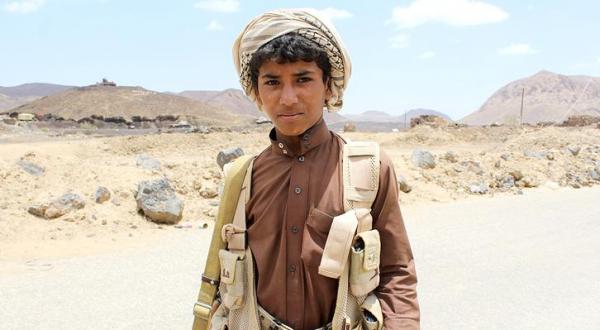Riyadh- Hours prior to the commencement of the ceasefire in Yemen, many of those who are concerned about the Yemeni situation are confident the truce will collapse because they know, well enough, the Houthis and ousted former President Saleh’s affiliates, who have foiled three previous attempts by the United Nations and its Envoy to Yemen, Ismail Ould Cheikh Ahmed to reproach between the stances of the two parties and reach a political solution to end the crisis.
The UN-sponsored ceasefire went into effect on Sunday, in preparation for the start of a new round of negotiations between the Yemeni parties in the 18th of April in Kuwait; in the framework of the readiness of the Yemeni government along with the UN efforts to end war in Yemen.
Yemen has announced before three attempts to ceasefire, yet they all failed.
In the first attempt, the Coalition’s Spokesman Brigadier General Ahmed Asiri declared the launch of a humanitarian truce, which was suggested by Saudi Arabia, confirmed by Foreign Minister Adel al-Jubeir in a press conference with his U.S. counterpart John Kerry in Paris and was supposed to last for five days, starting from May 12; however, militias and rebels did not abide by it.
The second attempt was made by the United Nations, which announced an unconditional truce until the end of Ramadan and aimed at delivering humanitarian aid to more than 21 million Yemeni civilians, yet militias back then broke this truce by trying to get advantage of it.
Nonetheless, the third attempt was not better. In the 4th of December, 2015, Yemeni fighting parties agreed on ceasing fire to start talks in Geneva; and despite efforts made by UN Envoy to Yemen, Ismail Ould Cheikh Ahmed to reach a political solution to end the crisis, yet the situation was dominated by conflicting opinions and requests.
At that time, the government emphasized on the necessity of relying on the UN resolution 2216 as the basic reference for the talks in addition to the outputs of the
national dialogue and the Gulf initiative, yet none of these succeeded to end the war as the truce was always breached.
Regarding this matter, Deputy Prime Minister and Minister of Civil Service and Insurance, Abdulaziz Jabbari said that the legislative government’s requests in the coming round include peace based upon implementing the U.N. resolution 2216, which guarantees handing over heavy weapons and regaining the state’s institutions.
Jabbari explained that the meeting tackled political efforts and conditions on the ground, in addition to the civilian’s sufferings.
He added: “we support any concrete stance in efforts put on implementing U.N. resolution 2216 that preserves the rights of all Yemenis, including Houthis and guarantees them to live in the guard of the Yemeni legitimate government.”
The Deputy Prime Minister also said that the meeting discussed the truce on which the Yemeni government will issue a statement. He confirmed that the Yemeni legitimacy is committed to the truce with many hopes built on reaching a permanent one.
